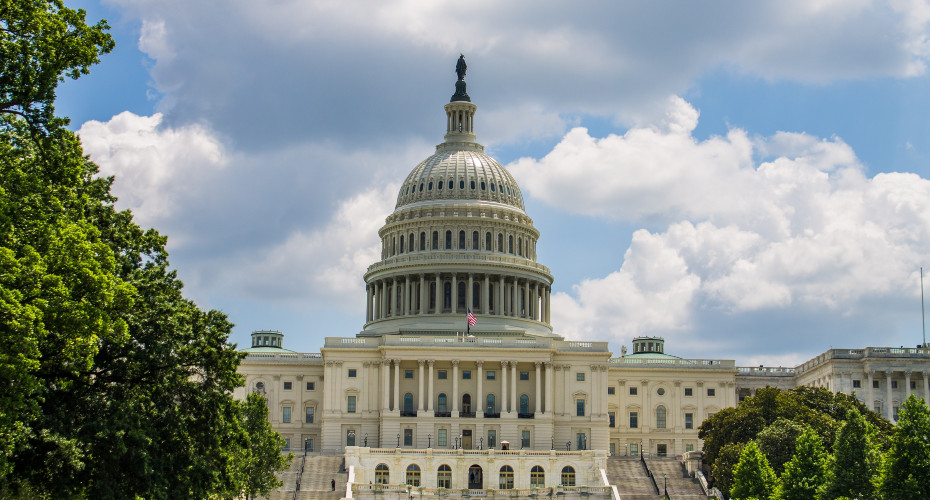New research shows “stunning influence” of health lobbyists over US politicians

The research shows the “stunning” evidence of the influence of health lobbyists on law and politicians.
“Stealth” lobbying via money and personal meetings is having a significant impact on US healthcare legislation, a major new study shows.
The research shows the “stunning” evidence of the influence of health lobbyists on law and politicians.
Professor Amy McKay, from the University of Exeter, who carried out the study, said: “This is the strongest statistical evidence I have ever seen of lobbyists’ influencing legislative policy”.
Professor McKay traced lobbyists’ personal and PAC contributions and linked them to their clients and employers, as well as members’ daily schedules and information about fundraising events. She compared this to the written preferences of 866 groups regarding proposed health reform provisions; and the details of 564 amendments offered by senators in committee.
Professor McKay used plagiarism detection software and other methods to identify written evidence of legislative favours performed by specific senators for lobby groups that hosted fundraisers for those senators. She looked at the period from November 2008 to March 2010 during which Obamacare was introduced and passed.
The book, Stealth Lobbying: Interest Group Influence and Health Care Reform, is published by Cambridge University Press
It shows members of Congress who were on more prestigious committees, and who had greater seniority on these committees, spent less time overall with lobbyists. Even members of the same party and in the same chamber spent radically different levels of time with lobbyists of national importance.
Groups that contributed to members of the key committee had about 41 percent of their preferences met in the Chairman’s Mark, compared to 22 percent for groups that did not contribute to those senators. Groups improved their proportion of requests realized in the committee report from 26 percent to 43 percent if they contributed to committee members.
Senators who received campaign donations from a lobbyist or the organization they represented were four times as likely to offer an amendment requested by the group in the form of committee micro-legislation. Contributions increased the predicted probability that a group got an amendment it wanted from 7 to 26 percent, and fundraising for a senator increased the odds of securing a requested piece of micro-legislation by a factor of almost 4.
Contributions were more closely linked to policy outcomes in the relatively dark amendment stage than in the more public stages of votes and floor debate. Contributions also had a greater effect on the probability that a proposal was adopted when legislators did not exhibit a strong preference.
Apparently innocuous phrases in amendments to committee legislation, most of which did not even find their way into the bill, were more likely to be accompanied by special interest money.
Groups that are willing to fundraise for senators were significantly more likely to be rewarded by the benefitting senators relative to groups that did not fundraise for those senators.
Campaign donors were more likely to secure repeat meetings with members than non-donors. Lobbyists were more likely to secure more meetings with members of less powerful (and less observable) congressional committees. Leading health care interest groups met quietly with senators and their staff to form deals.
Professor McKay said: “Influence was more likely when the lobbyist contributed to or held a fundraiser for the senator who proposed the legislation. Lobbyists who provided campaign contributions to members of the committee around the time its members were deciding what provisions to put in health reform legislation were more likely to be successful in securing preferred policies than those who lobbied the same people at the same time but did not contribute to them.”
Campaign contributions were significantly associated with the probability that the member met more than once with a lobbyist in a year.
As health reform legislation was being written, lobbyists working on health care issues gave more money to senators than all other lobbyists combined, and that these donations flowed specifically to senators working on the bill at the most opportune times in the legislative process. While lobbyists’ PAC contributions were often less sensitive than individuals’ contributions to legislators’ political position and timing, individual lobbyists gave to key legislators at key times, consistent with attempts to influence the content and outcome of health reform legislation.
The analysis shows that when a group, or any of its hired lobbyists, hosted a fundraiser for a senator, the odds that the senator offers legislation requested by the group were at least three-and-a-half times greater than when the group did not host a fundraiser for the senator.



